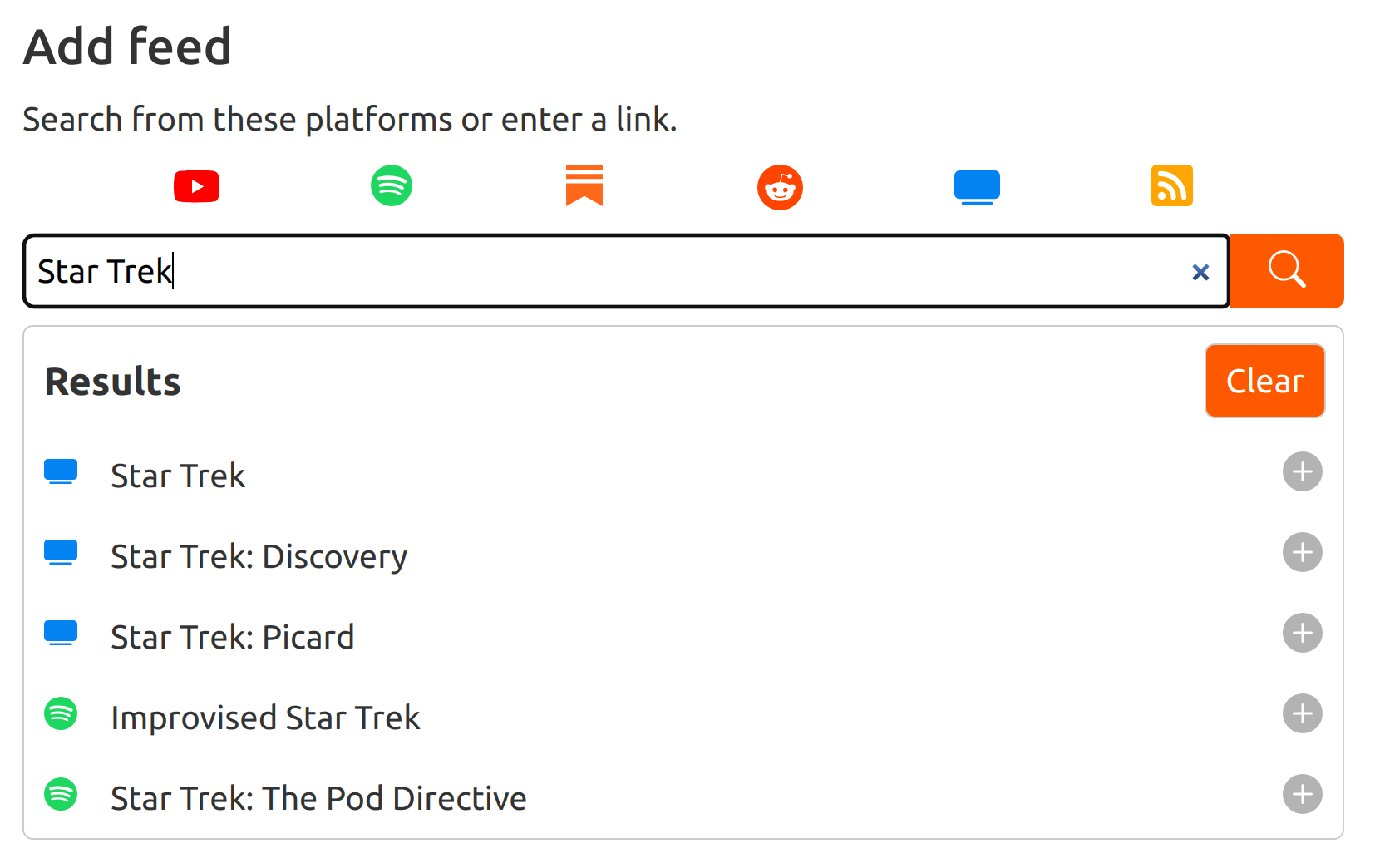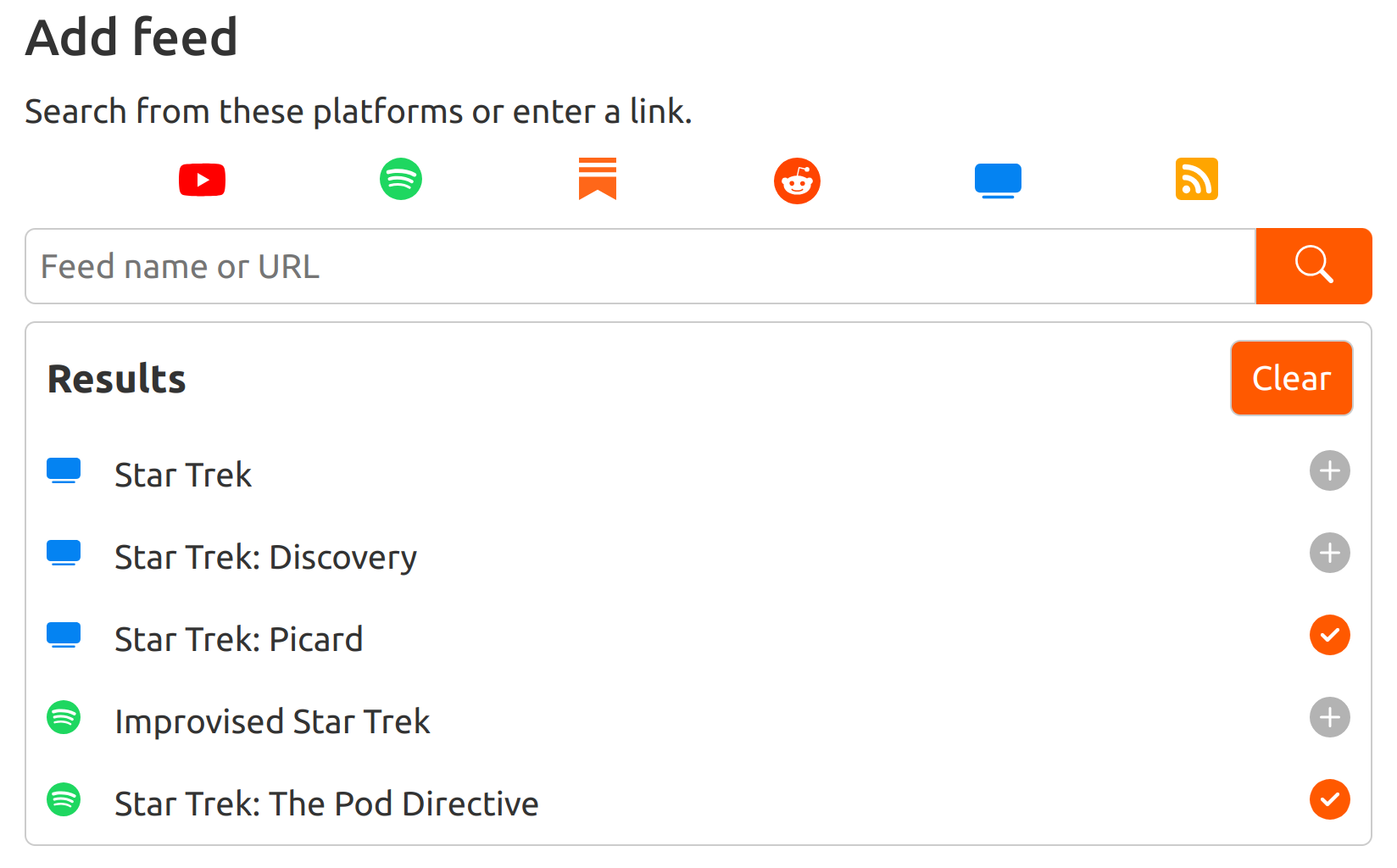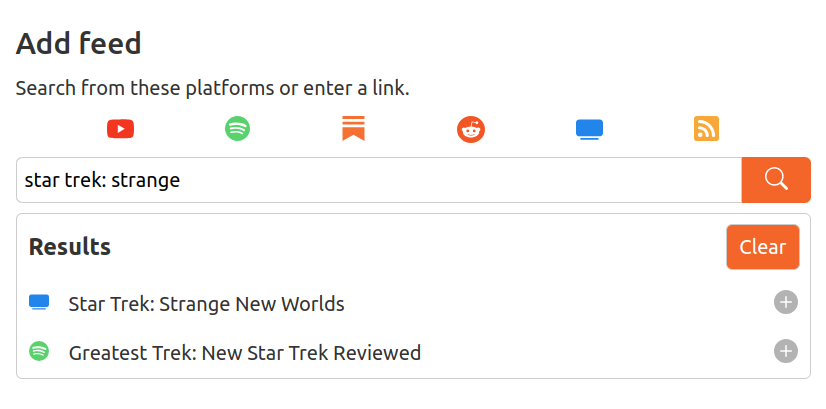Search has taken quite a beating in the past few months at the hands of large language model AI. The common refrain goes something like we don’t want pages of web links, we want an answer to our question.
True enough, but search isn’t just about question answering.
What if you want to add a feed to your Apricot list? Search turns out to be the perfect tool for that even though it’s not a question. The ability to search for a feed by name does two things.
It means you don’t need to copy and paste feed links from other platforms.
It reveals the true awesomeness of finding and following related content from different platforms.
The power of cross-platform search
Let’s say, for example, we want to follow the new Star Trek TV show, so we open the Apricot app, go to the Add feed, and search for “Star Trek”. We see something like this:

Apricot searches all platforms for Star Trek, so in addition to the TV show results, we also see two Spotify podcasts. In fact, if it weren’t for the ongoing Reddit blackout, we would also see several related subreddits.
We can follow all of these feeds in Apricot, and geek out on as much Star Trek content as we can take. We just click the icon to the right of each feed we want to follow and watch the icon change to an orange check mark. It should look something like this:

Now we’ll see both the TV show episodes and podcast episodes in our Apricot feed—super cool!
Looking up the road
If you’re a Star Trek fan, you probably already noticed a problem: the upcoming show isn’t actually in our results list. That would be Star Trek: Strange New Worlds. Let’s add the word “strange” to our query:

Ah, there it is.
One of the weaknesses with Apricot’s first version of search is that the query has to be pretty close to the true feed title. Looking ahead, we’ll be working on fixing this with fuzzy searches that tolerate partial matches and typos better, plus some other biggies:
A one-line description of each search result. Today, you can click on each result to see the feed in the original platform, but we know that’s not ideal.
A bigger set of feeds to search from. The more feeds our users add to Apricot, the better the search results will be for everybody.
AI-generated feed suggestions, when you don’t have a specific feed in mind.
Other languages besides English. Apricot search works ok for non-English feed names, but it’s really optimized for English.
Try it out and let us know what you think! Stay tuned for more updates and another blog post on the technical details of our search implementation.